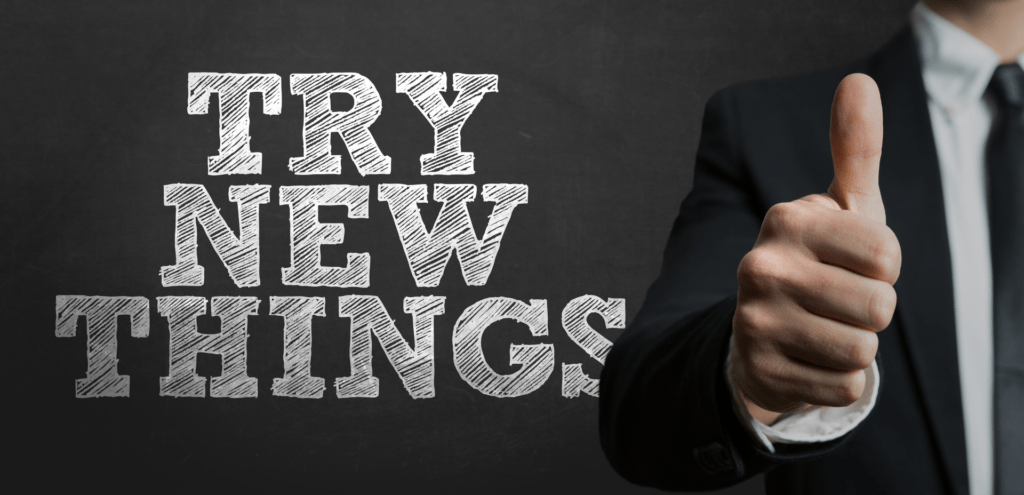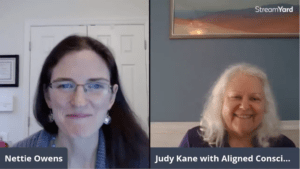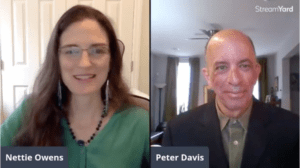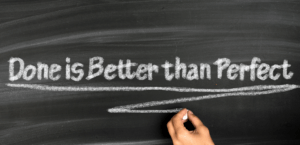
“The article you shared is a bunch of fluff.”
“That article sounds like it was written by AI.”
“This word we are talking about could be part of BS* Bingo.”
In a recent CEO Networking Meeting, these were the words I heard.
And I welcomed them.
Truth be told, I couldn’t wait to hear more.
In business, and in life, the norm is to want to be around people who confirm your own beliefs. As Francesca Gino, Harvard Business School Professor and behavioral scientist states in “Disagreement Doesn’t Have to Be Divisive,” “The reason many of us naturally try to dodge potentially contentious discussions is people often prefer to engage in conversations with those who will confirm their beliefs rather than disagree with them.”
It’s true. We have a natural desire to be around people who think, act, and behave like us.
But we know that isn’t always possible. And we can’t spend our life ducking from difficult conversations.
The quotes that I opened with were all in response to an article I shared during the CEO Networking Meeting about intentionality. There were people in the room for whom that word was powerful and meaningful. For others, it was overused and misused. And everyone had a different understanding of the definition of intentionality and how it applied to their work.
I welcomed the statements because once the pushback arrived and the participants were willing to share their beliefs that seemed to be outside of what the group was expecting, real conversation happened. I call it ‘real’ because it was the point when people became honest, engaged, and energized. They were willing to explore their beliefs about the word and begin to see it from another person’s perspective.
Doing Business Differently
Earl Nightingale was a radio broadcaster known as the “Dean of Personal Development.” Earl once said, “Look at what the majority of people are doing, and do the exact opposite, and you’ll probably never go wrong for as long as you live.” And yet, while you may feel like the ‘rebel’ and desire to lead a life that ‘does the opposite’ – there is strong evidence that points to the need for people to “belong.”
Research from BetterUp published in May of 2021 found that fostering a sense of belonging at work lowered turnover by 50% and resulted in 75% fewer sick days for people who felt they belonged. (https://www.betterup.com/blog/belonging).
Why then would a person want to follow Earl Nightingale’s advice to ‘do the exact opposite’?
To answer this, I am reminded of the Disney Pixar Movie, Cars, in which the lead character, Lightning McQueen, is taught that in order to make the tight left turn, drive faster, and ultimately win the race, he must “Go right to turn left.” In other words, he must do the opposite of what feels right and comfortable – of what is expected – in order to get to the end result he is desiring.
The same applies to us as CEOs and entrepreneurs. And, while it may seem counterintuitive to do business differently to foster belongingness, that is precisely what is needed.
Doing Business Differently to Foster Belonging
From my perspective, succeeding in business has meant that we would follow the ideas, paths, and norms set by one group of people. However, my training as a coach encourages the belief that all people are “naturally creative, resourceful and whole.” (Taught by Laura Whitworth, Karen Kimsey-House, Henry Kimsey-House, Phillip Sandahl in their book Co-Active Coaching.)
If this is true, then we are all co-creators in the solutions to our problems. It is my belief also that those solutions would be unique to the person. Meaning, each person would solve their problems in the way they are uniquely suited to do so and that each solution should be acceptable.
By believing that each person, or in this case each business, can act differently and still succeed, is saying that you can create a sense of belonging around a group of people doing the opposite – kind of a ‘go right to turn left’ moment.
How do we do business differently?
So, if each business is unique, the problems they face are unique, and the solutions they come up with are unique – is there really a “playbook” that can be followed to help? How do you go about doing business differently in a manner that suits you and your team?
I may not have written an entire playbook, but I do believe there are three things you need to do:
1 – Be willing to ask questions
2 – Be willing to bring people together that you don’t know or that have a different perspective from your own.
3 – Be willing to take actions that work for you and your business, even if they are not accepted as the ‘norm.’
The keyword here is “willing.” “Willing” implies risk. But if there’s one thing I know about entrepreneurs and CEOs – they’re risk-takers.
Have those conversations that make you uncomfortable
In the article, “Why Being Emotionally Intelligent Doesn’t Have to Mean Putting Up with BS,” David M. M. Taffet shares “Sometimes, compassion requires doing difficult things…You can’t do that while remaining agreeable…What they [your team] choose to do with the discomfort they experience will either help them rise to the challenge of becoming a better team member or expose their unshakeable toxic nature.”
While Taffet was talking about having conversations with a toxic team member, it applies to all difficult conversations – whether it be with vendors, clients – or even family.
Most importantly, it doesn’t mean compassion and empathy go out the window. It means just the opposite. You are showing compassion and empathy when you are willing to have those conversations. And, in turn, those tough conversations can improve relationships.
What can doing business differently lead to?
Let’s circle back to the conversation in the CEO Networking meeting. What ultimately transpired in the conversation – once the participants were willing to question the article, how it applied to their business, and its veracity – was that they were willing to question what was put before them instead of accepting it as truth. They were able to be open to others interpreting the article differently.
Doing business differently will lead to success or failure, just as doing business the same way it has always been done. It will be uncomfortable. However, it has the best chance of solving the problem at hand, engaging people, outing the truth, and ultimately creating a sense of belonging that could change the world.
*BS = Bull Sh*t
Please comment below. I would love to hear from you.
-Nettie














No comments yet.